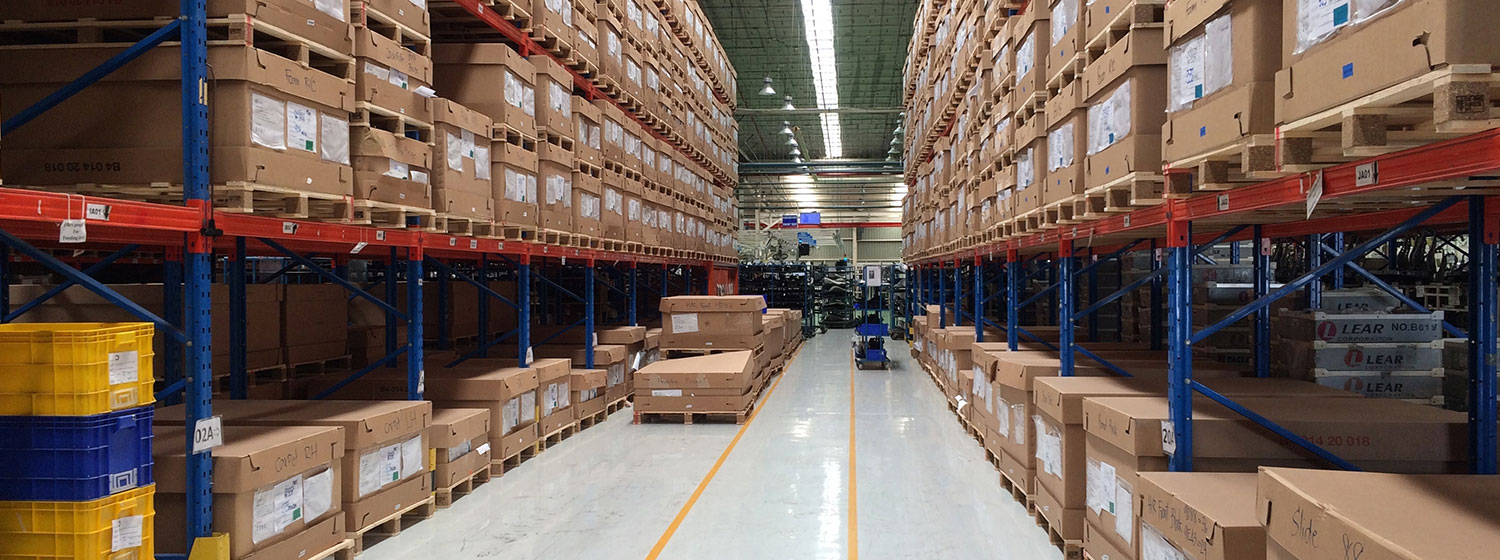- Better collaboration with suppliers
- Better quality control
- Shipping optimization
- Reduced inventory and overhead costs
- Improved risk mitigation
- Stronger cash flow
- A more agile business
- Better visibility and data analytics
Better collaboration with suppliers
Suppliers that understand the business’s cost constraints and objectives can be particularly important for businesses with tight margins. Wing It Cosmetics’ Gahir says that manufacturers selling to retail outlets that expect a 40-50% mark-up on the factory gate price can face a profits squeeze if raw material prices are too high. She recommends when negotiating with suppliers, retail-facing businesses should aim for a "golden ratio" of no more than 25% for raw material prices as a percentage of retail sales.
But cost is not the only consideration. Flexibility matters too. In volatile market conditions, Eccles of Employment4Students found that long-standing suppliers were often more willing to accommodate temporary cash flow difficulties. While it’s tempting to shop around for cheaper alternatives, Eccles warns against it. “Be cautious about switching purely on cost and remember that long-term relationships are valuable,” he says.
And, when it comes to paying suppliers overseas, wherever they might be based, you can make settling invoices safe and simple with instant payments using American Express vPayment®, regardless of whether you have an American Express® Card or not.
Better quality control
When you and your suppliers are working to the same standards, quality control problems can be detected earlier. Gahir gives an example: “One of my packaging suppliers contacted me to say that a batch of packaging that had just arrived wasn’t up to the required standard and she planned to send it back, which would add three days to the delivery schedule.” However, for Gahir, this delay was a better outcome than having to deal with a defective batch of packaging herself. Emphasizing the benefits of trust in supplier relationships, Gahir says: “That conversation was only able to happen because we're on the same page.”
Shipping optimization
Logistics costs are set to rise significantly, potentially impacting small businesses across the UK. Reducing the number of separate distribution channels and making use of logistics specialists could reduce your distribution costs relative to your competitors, helping you to maintain stronger cash flow and profits. “Having too many suppliers with independent shipping and delivery streams has been the biggest source of inefficiency,” says Gahir. “We’ve responded to this by looking at storage and shipping aggregators.”
Reduced inventory and overhead costs
An efficient supply chain can reduce the need to maintain inventory, therefore cutting overhead costs associated with storage and security. However, a very lean inventory increases pressure on distribution networks and reduces resilience to supply chain shocks. So it’s important to identify your optimal inventory level.
Improved risk mitigation
In general, the further along a supply chain a problem is detected, the more expensive it is to fix. That’s why supply chain management, which offers visibility of the supply chain from end-to-end, is so important.
For this reason, around 50% of supply chain leaders own all of the six "links" frequently associated with supply chain management: product development; demand planning; supply planning; sourcing and procurement; manufacturing; and logistics and distribution2.
Stronger cash flow
Running an efficient supply chain that is based on good supplier relationships, maintains strict quality and stock control, and keeps a watchful eye on costs and prices can greatly benefit a business’s liquidity by improving cash flow.
A more agile business
“A good supply chain enables us to adapt to opportunities,” says Eccles. For example, Employment4Students identified a process inefficiency in a client’s business. Eccles explains: “We realised we had a couple of suppliers whose software could help and managed to get a process in place really quickly, which they adopted and found really helpful. So, if you’ve got good suppliers, they can help you unlock new opportunities.”
As always, however, it pays to be prepared, as supplier capacity can impede business opportunities. Gahir says that it’s worth investing more up-front to ensure that the suppliers you have in place are able to scale up as your business grows.
Better visibility and data analytics
Business managers can keep in constant touch with suppliers using mobile phone apps, conferencing platforms and shared dashboards. Software tools can also help to manage stock levels efficiently, track distribution channels and monitor business performance. Having real-time data metrics at your fingertips will enable you to put in place contingency plans to enable your business to ride out storms and take advantage of opportunities as they arise.
As you set about improving your supply chain and enjoying the business benefits of efficient supply chain management, you can also gain greater control over your finances by paying suppliers with American Express' vPayment Set the payment amount, time-frame for use, and the suppliers it can be used for to make instant international payments using single or multi-use virtual account numbers.
1McKinsey: Resetting supply chains for the next normal
2Deloitte: Supply chain leadership: Innovation, collaboration, talent alignment
This article is intended for general informational purposes only and does not constitute legal advice or an opinion on any issue. It should not be regarded as comprehensive or a substitute for professional advice.

 المملكة العربية السعودية
المملكة العربية السعودية 








